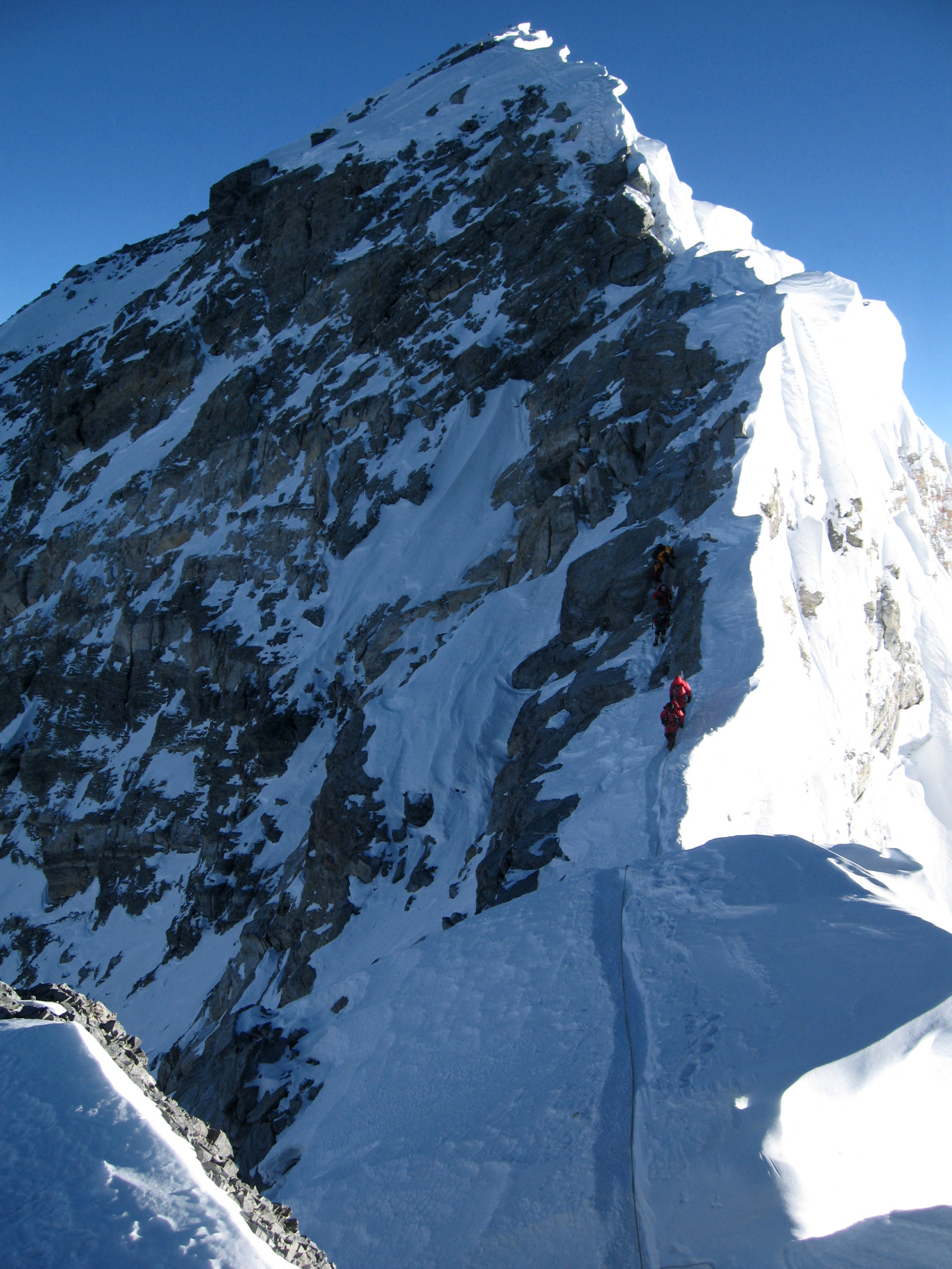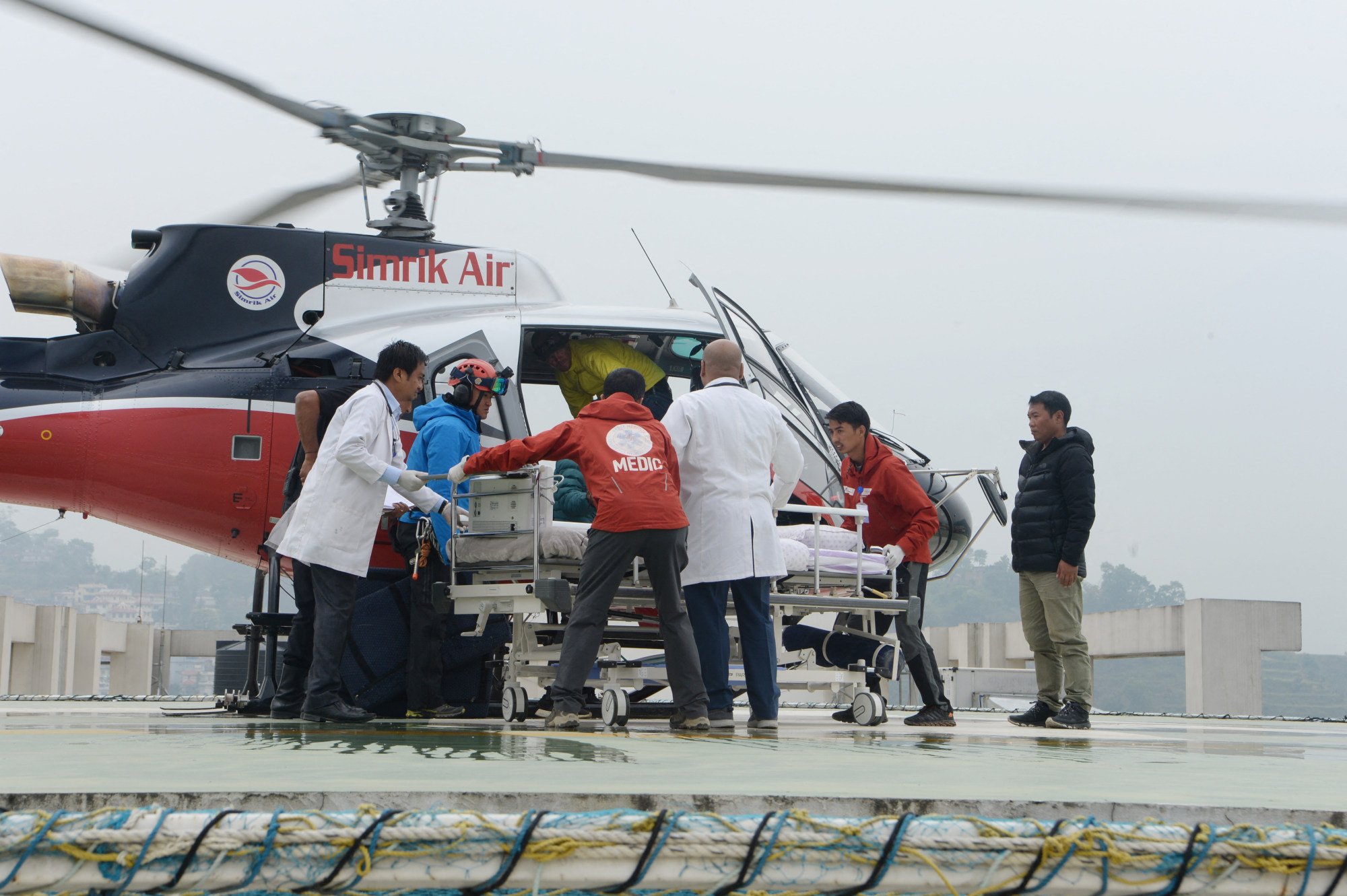
Money first, rescue later: China student dies from altitude sickness on Mount Everest climb due to insurance confusion
- Insurance advert on app fails to mention that policy does not cover country of Nepal
- Student dies as company insists on US dollars up front before sending rescue helicopter
The death of a university student who was climbing Mount Everest – due to confusing advertising about an insurance policy – has sparked a heated debate on mainland social media.
The 26-year-old from China’s top Fudan University, who uses the pseudonym Lu Wen, died in a hotel near the South Side Base Camp of Everest in Nepal on February 14.
He started his journey along the Everest Base Camp trek on February 6 and was found collapsed from altitude sickness hundreds of metres away from the hotel on his way back on February 11.
He was carried to the hotel and recovered a little, but his condition deteriorated the next day.

Another hiker, surnamed Huang, helped him call the US insurance company AIG’s Chinese branch and was shocked to learn that the cover Lu Wen bought before his trip, Asia Journeysafe Travel Protection, does not include Nepal.
Lu Wen’s father, Lu Huaimin, told the mainland media outlet Hongxing News that his son bought the insurance via Ant Insurance, an internet insurance agency service platform operated by the Alibaba Group.
Alibaba is the owner of the South China Morning Post.
The advertisement on the insurance page of the platform did not mention it does not cover Nepal.
However, the same insurance page on AIG China’s website highlighted the exclusion.
Lu senior later learned the exclusion was only specified in the insurance policy sent to his son’s mailbox while he was on the flight to Nepal.
According to the policy, Lu Wen paid 356 yuan (US$50) for the plan that covers 20 days from February 4. It included a medical evacuation service that costs up to 400,000 yuan (US$56,000).
Huang asked the insurance company to send a rescue helicopter at Lu Wen’s own expense.
Lu senior said he received phone calls from both AIG and the Nepal heliservice company on February 13, demanding he pay for the service in US dollars before they could send the helicopter.
As it was the Chinese Spring Festival, banks had closed earlier than usual. Lu senior said he did not have US dollars in his account and begged to pay in Chinese yuan.
AIG turned him down and said it could only help contact the heliservice company, and the latter insisted on payment in advance.
The rescue helicopter took off later that day, and took 20 minutes to reach the location, but could not land due to the weather conditions.
It went back the next morning, but Lu Wen had stopped breathing the previous night.
The tragedy has triggered controversy on mainland social media.
“This is a society where money comes before everything, including life,” said one person.

“We should all read the details when buying insurance. We cannot trust the adverts,” said another.
“When going on dangerous trips like this, we must make sure we have prepared everything, from the insurance to having enough foreign currency in our bank account,” said a third.
The insurance Lu Wen bought was taken down from Ant Insurance’s website following the Hongxing News report on April 16.
A member of customer service staff with Ant Insurance told the Post they did not know why it had been taken down.
As to why the advert was different from that on the insurance page of AIG’s website, the staff member said they only provided a sales platform and were not responsible for the insurance company’s services regarding their products.
The Post contacted AIG China about the ad and their medical heliservice but had not received a reply by the time of writing.

